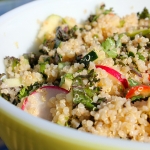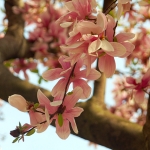Stinging Nettles (Urtica dioca)
different plant parts are useful for allergies, BPH, and damaged kidneys
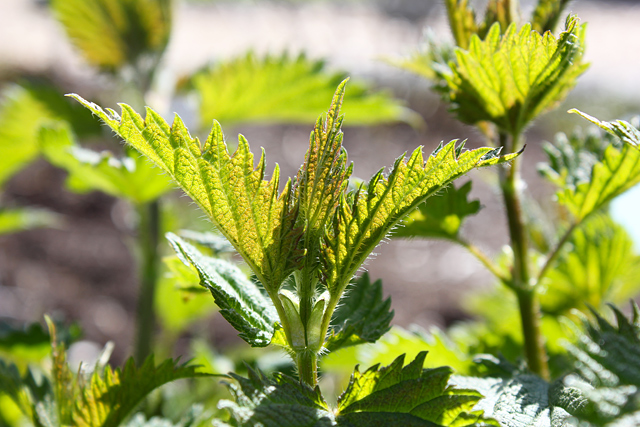
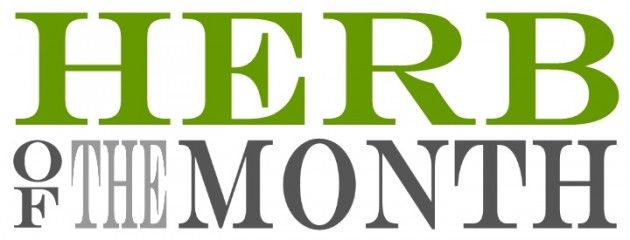
Nettles are everywhere! They can be found in your back yard, farmer’s markets, the Bible, Africa, a bowl of soup, and even in ancient proverbs. One particular nettle proverb that caught my attention was this: Faut pas pousser mémé dans les orties. It is a French saying which literally translates in English to “Don’t push your grandma in the nettles!” This phrase is similar to the American adage of “Don’t push your luck.”
Although I’ve never been good with cliches, it is interesting that across the globe, nettles are known for their sting. It is the herb that bites that has a lesson to teach us. The same part of the plant that stings is actually an allergy antidote.
Works Wonders for Allergies
Nettles are my go to herb for seasonal allergies and other allergic related reactions. It is the freeze dried form of this herb that works the allergy magic. While the exact mechanism has not been researched, data exists on the effectiveness of using freeze-dried nettles in the treatment of allergic rhinitis1. However, a valid hypothetical explanation exists. The same phytochemicals that cause the stinging skin sensation may be preserved when they are freeze-dried. When the freeze-dried form is ingested, these same phytochemicals (one of them is histamine) modulate the allergic response in a way that mimics an anti-histamine medication. Even though research studies do not explain this mechanism from A to Z, clinical results tell for themselves. This herb works for allergies in as little as 30 minutes.
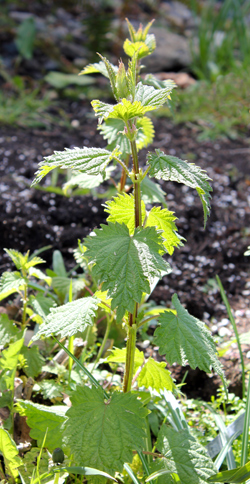
Beneficial for Benign Prostatic Hyperplasia
Male hormones drive the growth of the prostate in benign prostatic hyperplasia (BPH). It is the root of Urtica dioca that can modulate these hormones in a way that interferes with their ability to grow the prostate. To help you understand the concept in a very titrated fashion, think of it this way: Mr. Hormone tells the prostate to grow in size. Usually Mr. Prostate listens to Mr. Hormone, because that’s just the way God made him. But, when nettle root is around, Mr. Prostate can’t really hear what Mr. Hormone is telling him to do. Think of nettle root as hormone ear muffs for the prostate. When nettle root is around, it may be harder for the prostate to grow.
Nettle Leaves Have Multiple Uses
Nettle leaves are a rich source of chlorophyll, which may be why they have been traditionally used as a spring tonic. They contain high levels of antioxidants, including the wonderful anti-allergy flavonoid, quercitin. They are a decent source of vegan calcium and iron. Because of their nutrient density, they are an optimal green to consume in pregnancy. With all these goodies, nettle leaves act as a natural anti-inflammatory agent. Nettle leaf tea can be used as a diuretic, especially for flushing out the urinary tract during an infection.
Nettle Seeds Are a Kidney’s Best Friend
Best friends bring the best out of you. They also protect you when you’re in trouble. This is what nettle seeds do for the kidney. They help to regenerate dying nephrons. Urtica dioca seeds are especially beneficial for those on hemodialysis or peritoneal dialysis.
Using Nettles Safely
In general, nettles are very safe because they are consumed as a food throughout the world. However, because nettle leaves are diuretic, they are an archenemy to kidneys in chronic renal failure. Do not use nettle leaves if you have any sort of acute or chronic kidney failure.
If you would like to start taking the seeds, root, or leaves of Urtica dioca, please consult your naturopathic doctor. A licensed healthcare practitioner can safely tailor the dose according to your needs.
Resources:
1. Mittman P: Randomized, double-blind study of freeze-dried Urtica dioca in the treatment of allergic rhinitis. Planta Medica. February 1990.
2. Yarnell, Eric. Urology. Bastyr University. Fall 2011.
3. Hoffman, David. Medical Herbalism: The Science and Practice of Herbal Medicine. Healing Arts Press, 2003.
4. Urtica dioca Monograph. Alternative Medicine Review. Volume 12. September 2007.
Enjoy More Archerfriendliness
Drug companies target histamine to relieve your seasonal allergies. Histamine is the jackpot! They want to make loads of money on your allergies so that they can buy their families all the organic...
Dear Wendy's Eating College Guy, Your friends from high school called you "Frodo", but I think you're cuter than Elijah Wood and I really like your skinny legs. Your ability to play Ghost with...
Photo by my friend, Gregory Bodwell. The most popular social beverages happen to be the ones that slug up your liver. There are numerous other drinks to pick on, like soda, and even worse, diet so...

